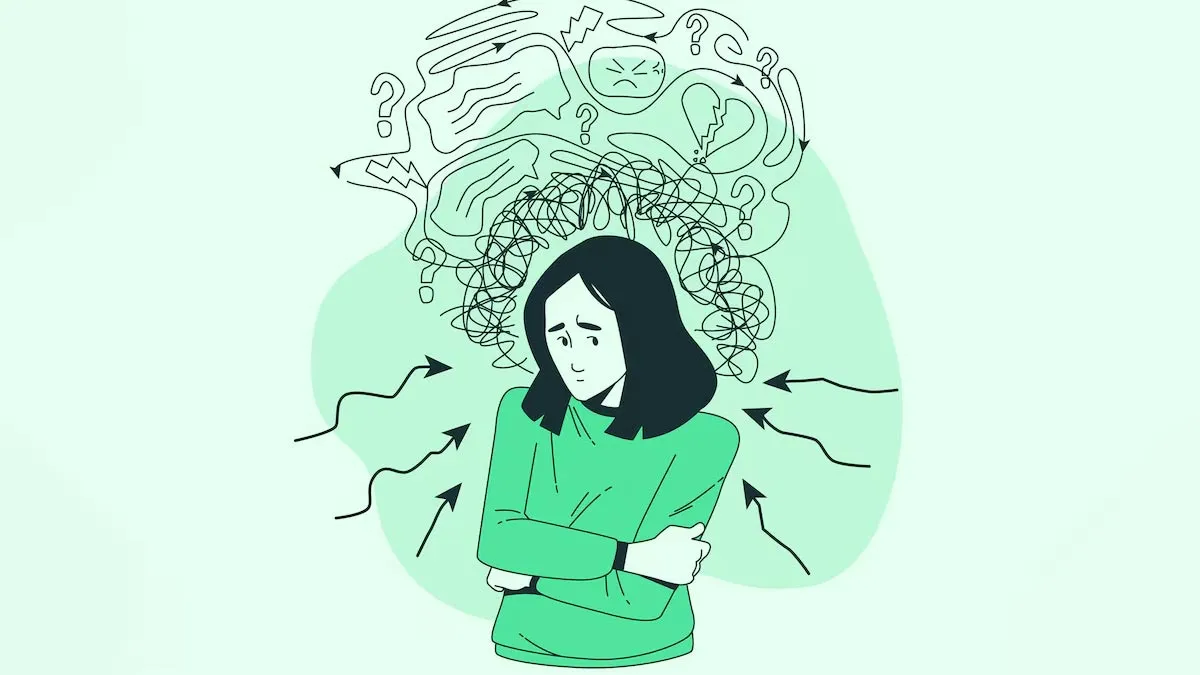
The mind is a powerful tool, but when left unchecked, it can also become a breeding ground for negative and irrational thought patterns. Uncontrolled streams of thoughts can lead to various mental health issues, ranging from mild stress to severe anxiety. One common culprit in this cycle is cognitive distortion, a pattern of thinking that distorts reality, often leaning toward the negative.
Table of Content:-
CHECK YOUR
MENTAL HEALTH

Cognitive distortions are exaggerated or irrational thoughts that can cloud judgement and emotions. The good news? These distortions aren’t permanent. With self-awareness and the right techniques, you can learn to challenge and transform these thought patterns. To understand how to tame negative thoughts and fix your cognitive distortions, the OnlyMyHealth team interacted with Priyal Awasthi, Psychologist and Therapist, Transform Happily, Bengaluru.
Understanding Cognitive Distortion

But before we jump to management strategies, let’s briefly understand cognitive distortions. Cognitive distortions are irrational and exaggerated patterns of thinking that twist your perception of reality, often leading to negative emotions and behaviours. These thought patterns act as mental filters, distorting how you interpret situations, yourself, and the world around you. Common examples include "catastrophising" (assuming the worst will happen), "black-and-white thinking" (seeing situations as all good or all bad), and "personalisation" (blaming yourself for things outside your control). These distortions thrive on assumptions and inaccuracies rather than facts, making everyday challenges seem insurmountable.
According to the Harvard Medical School, cognitive distortions are internal mental filters or biases that distort reality, often intensifying feelings of distress, fuelling anxiety, and diminishing self-worth. These thought patterns act as mental shortcuts, shaping how we interpret information and respond to situations.
Also read: What Is Cognitive Distortion And How Does It Affect Your Mental Health?
Identify Your Thought Patterns
Priyal emphasises the importance of recognising your thoughts. “The best way to deal with it, in my experience, is to start by identifying what it is that you're thinking. Maintaining a journal can be the best way to do this. Decide on a time duration, sit with yourself, and pen down your thoughts,” she suggests. Journaling allows you to notice recurring patterns and triggers, setting the stage for change.
Use the Triple Column Technique

A simple yet effective tool is the “triple column technique,” developed by Dr David D Burns. According to Priyal, “It not only gives you an opportunity to identify the cognitive distortion but also a chance to question that thought.” Write down your negative thoughts, identify the distortion, and replace it with a more rational perspective.
Try Role-Play Exercises
Role-playing can help you reframe negative thoughts. Priyal advises, “How would you react if someone said these negative things to a person you love? Or would you say these things to the person you love the most?” This mental exercise highlights the unkindness of your inner dialogue, encouraging more compassionate and optimistic self-talk.

Replace ‘Shoulds’ with ‘Wants’
One common cognitive distortion involves rigid “should” statements, like “I should exercise daily.” Priyal explains, “Replacing ‘I should’ thoughts with ‘I’d like to...’ or ‘I want to...’ gives you an alternate perspective and takes off the pressure. This improves your mood, outlook, and confidence level.” This subtle shift promotes self-compassion and reduces the burden of unrealistic expectations.
Seek Reality-Based Explanations
Often, negative thoughts stem from biased interpretations. To counter this, Priyal recommends looking for other plausible explanations. “Try to come up with other possible explanations for a situation besides your initial negative interpretation. Consider different perspectives based on facts, not perceptions,” she says. This practice challenges the validity of distorted thoughts and fosters balanced thinking.
Practice Mindfulness

Mindfulness techniques, such as meditation and deep breathing, are invaluable in managing cognitive distortions. “Mindfulness helps you become more present and less caught up in negative thought cycles,” notes Priyal. Regular mindfulness practice enhances self-awareness and cultivates a calmer, clearer mind.
Challenge Negative Core Beliefs
Identifying and challenging deep-seated negative beliefs is critical. These beliefs often shape recurring distortions. Write them down and ask yourself: Are they factual, or are they assumptions you’ve internalised?
Focus on Gratitude
Gratitude journaling is a powerful antidote to negativity. Each day, jot down a few things you’re grateful for. This habit rewires your brain to focus on positivity and abundance.
Surround Yourself with Positivity

Engage with people and activities that uplift you. A supportive environment can reinforce constructive thinking and counterbalance negative influences.
Be Patient and Persistent
Changing ingrained thought patterns takes time and effort. Priyal advises, “Be kind to yourself throughout the process, and don't get discouraged if distortions persist initially.” Small, consistent steps will eventually lead to significant change.
Addressing cognitive distortions is a gradual process that requires self-awareness, the right tools, and persistence. By following these strategies and incorporating the expert advice of Priyal Awasthi, you can transform your thought patterns and embrace a more optimistic, balanced perspective.
Also watch this video
How we keep this article up to date:
We work with experts and keep a close eye on the latest in health and wellness. Whenever there is a new research or helpful information, we update our articles with accurate and useful advice.
Current Version